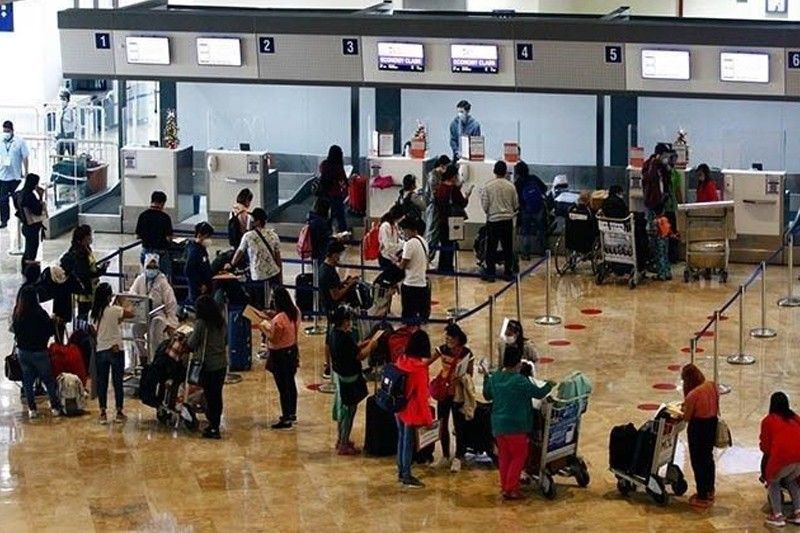US eases travel advisory for Philippines

MANILA, Philippines — The United States has toned down the “Do Not Travel” advisory for the Philippines due to COVID-19 to “Reconsider Travel” status.
The State Department eased travel advisories for the Philippines and to most of the world a month and a half after warning its citizens not to travel to the Philippines and many other countries.
Yesterday, the State Department removed 61 countries from the Level 4 or “Do Not Travel” category and designated them as Level 3 or “Reconsider Travel” destinations, using the Centers for Disease Control and Prevention (CDC) recommendations.
The travel advisories were lowered after the CDC announced it revised its criteria for travel health notice to better differentiate countries with severe outbreak situations from countries with sustained, but controlled, COVID-19 spread.
“Make sure you are fully vaccinated before traveling to Philippines,” the CDC said in its advisory that categorized the Philippines as Level 3.
It said “unvaccinated travelers should avoid nonessential travel to Philippines.”
Because of the current situation in the Philippines, all travelers may be at risk of contracting and spreading COVID-19 variants. “Travelers should follow recommendations or requirements, including wearing a mask and staying six feet apart from others,” CDC added.
In April, the State Department urged its citizens not to travel to the Philippines, citing health concerns due to the coronavirus.
BSP, US embassy ink pact
Meanwhile, the Bangko Sentral ng Pilipinas (BSP) and the US government have inked a memorandum of understanding (MOU) to enhance cooperation in education, research and training.
BSP Governor Benjamin Diokno and US embassy Chargé d’Affaires John Law, representing the Philippine-American Educational Foundation (PAEF) also known as the Fullbright Commission, signed the agreement yesterday.
The agreement establishes a general framework for facilitating the grant of scholarships and training programs, as well as facilitating educational exchanges under the central bank’s capacity-building and research initiatives.
Diokno said during the virtual ceremony the MOU on educational exchanges and training with Fulbright is envisioned to promote the BSP’s thrust to improve the legal, scientific and technical capabilities of its officials and staff working in the central bank.
The MOU involves the grant of scholarships and training programs and for facilitating educational exchanges under the BSP’s capacity-building and research initiatives.
“May this mark the beginning of a long and productive and collegial relationship towards building a body of high-quality research for our institutions and for the nation,” Diokno added.
The PAEF, founded in 1948, is the longest-running Fulbright education exchange program in the world. In addition to offering academic and research programs for students, academic faculty and mid-career professionals, it supports Philippine government agencies for staff development.
For his part, Law said the MOU is just the beginning of a growing partnership between the US and the BSP.
“One of our most important endeavors here in the Philippines is partnering on human capital development,” Law said.
The US government and BSP have partnered on several projects, including a collaboration between the US Treasury advisors and BSP staff to strengthen the central bank’s financial stability framework and establish a residential real estate index.
The US Agency for International Development has also partnered with BSP to expand the use of e-payments throughout the country. – Lawrence Agcaoili
- Latest
- Trending

























